The 9 best vibe coding tools developers are using to improve their
workflows
A guide to some of the newest and most widely used AI coding tools, as of April 2025.

AI coding tools are advancing so quickly that most developers don’t know which ones are worth using or how they differ.
I've spent the last week test-driving dozens of AI code editors (and related tools) to get a feel for which ones are worth using — and the nine tools below are the ones I think are worth trying out.
Here are the nine most capable AI code editors and agents available today, along with brief summaries about how they work and what makes them special:
Codex CLI
Codex CLI is OpenAI’s newly released terminal-based coding agent.
It supports multimodal inputs like screenshots and diagrams and is powered by the latest o3 and o4-mini models.
It’s still early in its lifecycle, but it’s fully open source and worth watching as it evolves.
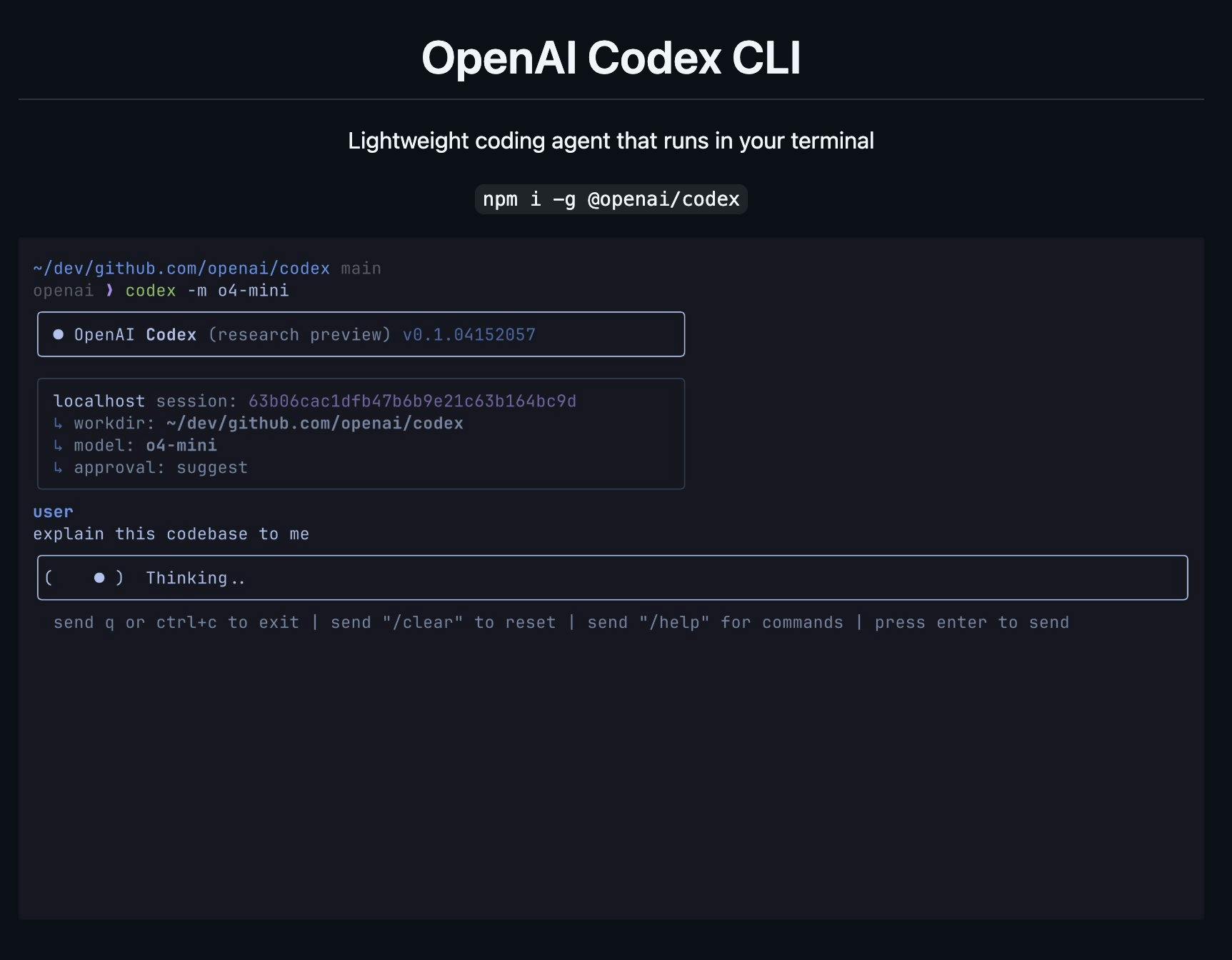
Cursor
Cursor is a popular AI-enhanced fork of VS Code, with a strong community and growing adoption.
It features inline AI editing (⌘K), smart code completion, and a built-in agent that helped popularize the vibe coding trend.
It offers a $20/month unlimited plan, or usage-based pricing with a high-quality MAX mode.
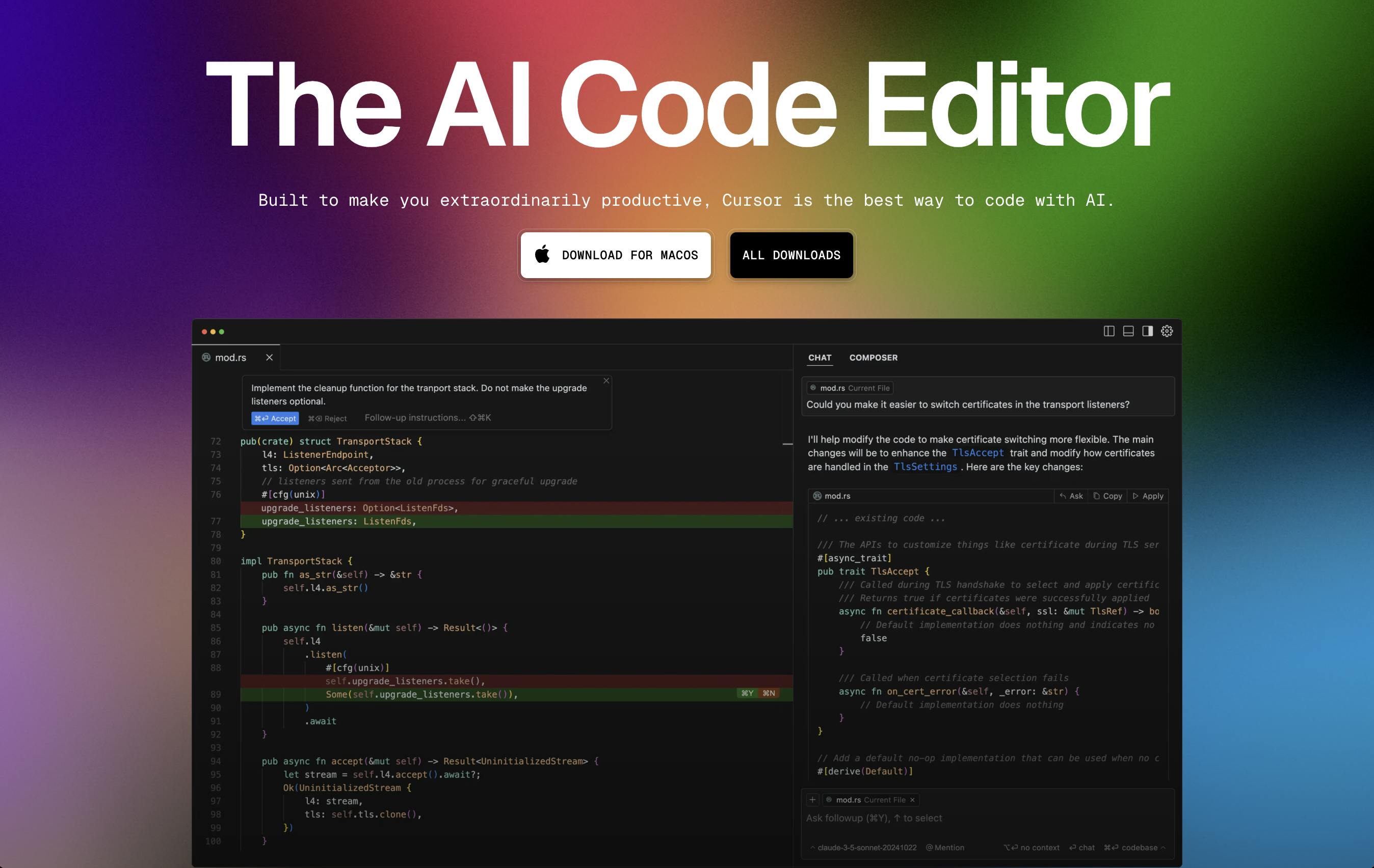
Cline
Cline is a VS Code extension and sidebar agent with over 1.2 million installs.
It integrates easily into VS Code, Cursor, or Windsurf and sends all tokens to an LLM for high-quality output, though that can make it expensive.
The agent can also inspect your Chrome browser, read logs, and interact with page elements. It includes a polished MCP marketplace for one-click installs.
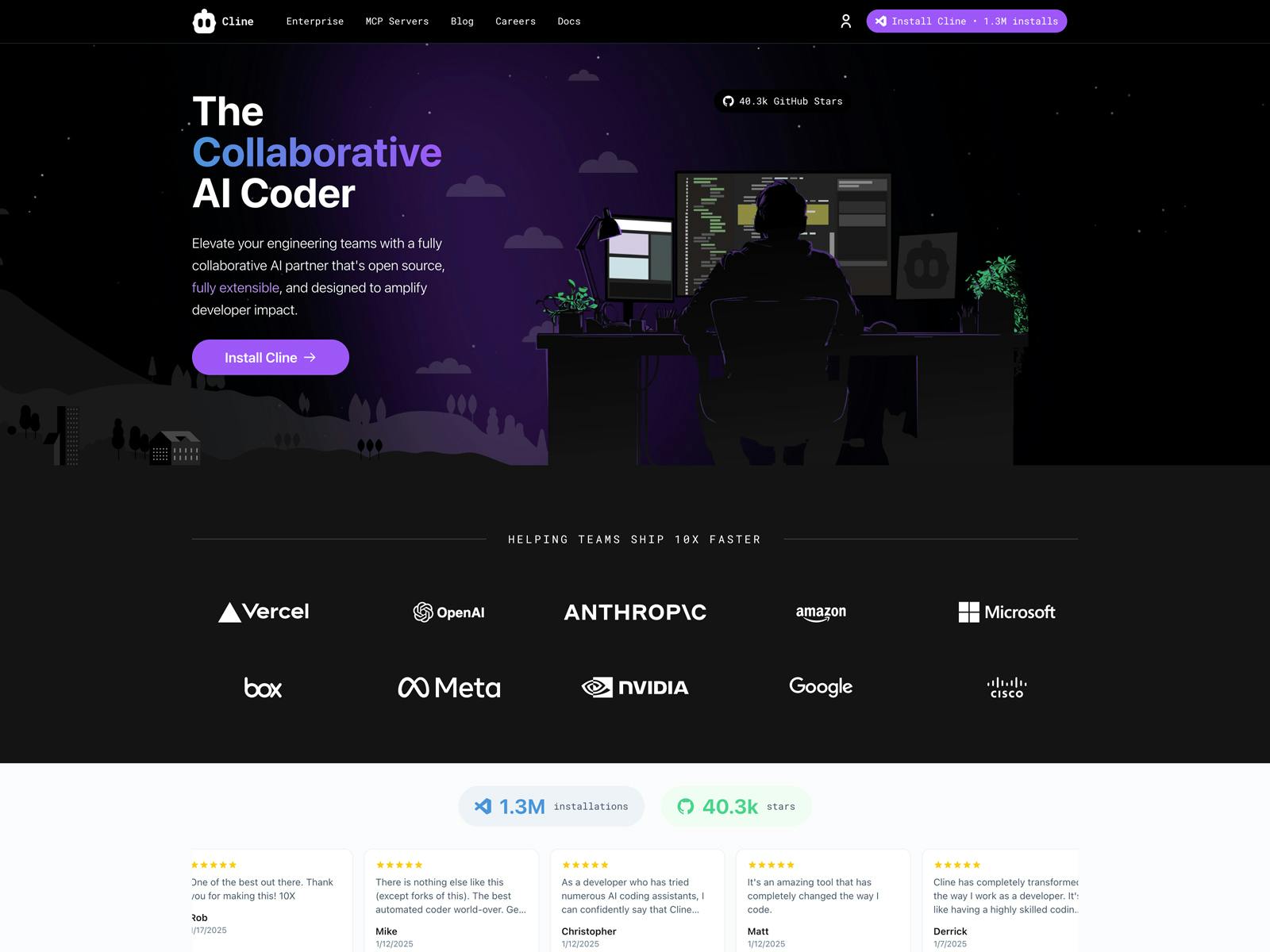
Roo Code
Roo Code is a fork of Cline with 380k+ installs and a few unique upgrades.
While it lacks a built-in marketplace, it supports custom “modes” for fine-tuned repository behavior that are really useful.
Also, its Boomerang Tasks feature lets you break down complex work into manageable subtasks that are handled by assistant agents. I'm a huge fan.
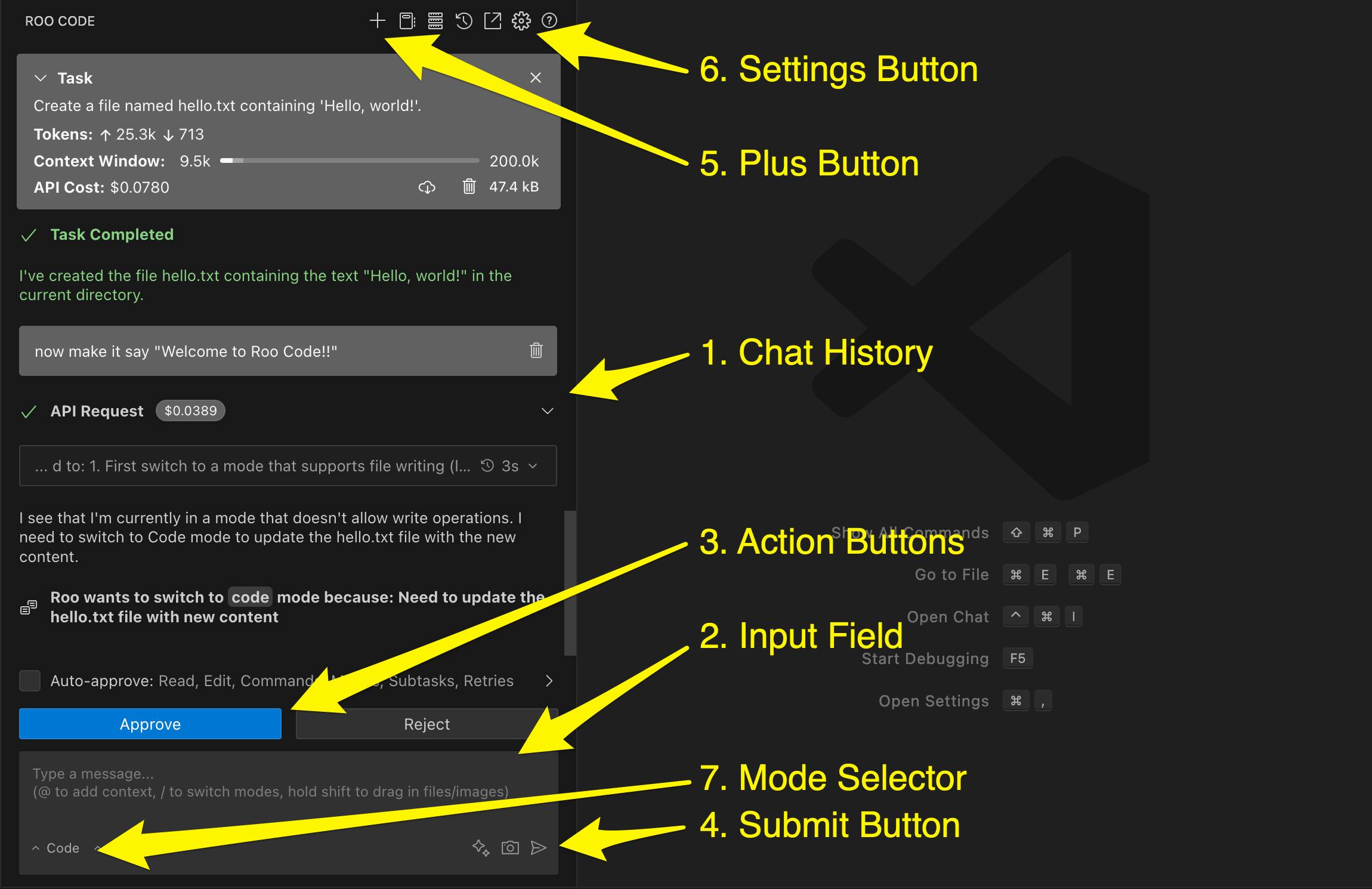
Windsurf
Windsurf is a standalone AI code editor built on VS Code, with 2.5 million installs.
It includes smart tab completion, inline editing, and an integrated agent — all built in from the start.
Windsurf also offers a 1-click “deploy to web” feature and supports plugins across JetBrains, Vim, Emacs, and more. OpenAI is currently in talks to acquire it.

Repo Prompt
Repo Prompt is a minimalist alternative to traditional IDEs and agents.
Rather than running an AI assistant, it helps you precisely select context from your codebase and send targeted prompts to LLMs.
Built for one-shot tasks and deep control, it’s especially appealing to devs who prefer explicit, prompt-based workflows. Mac-only for now.
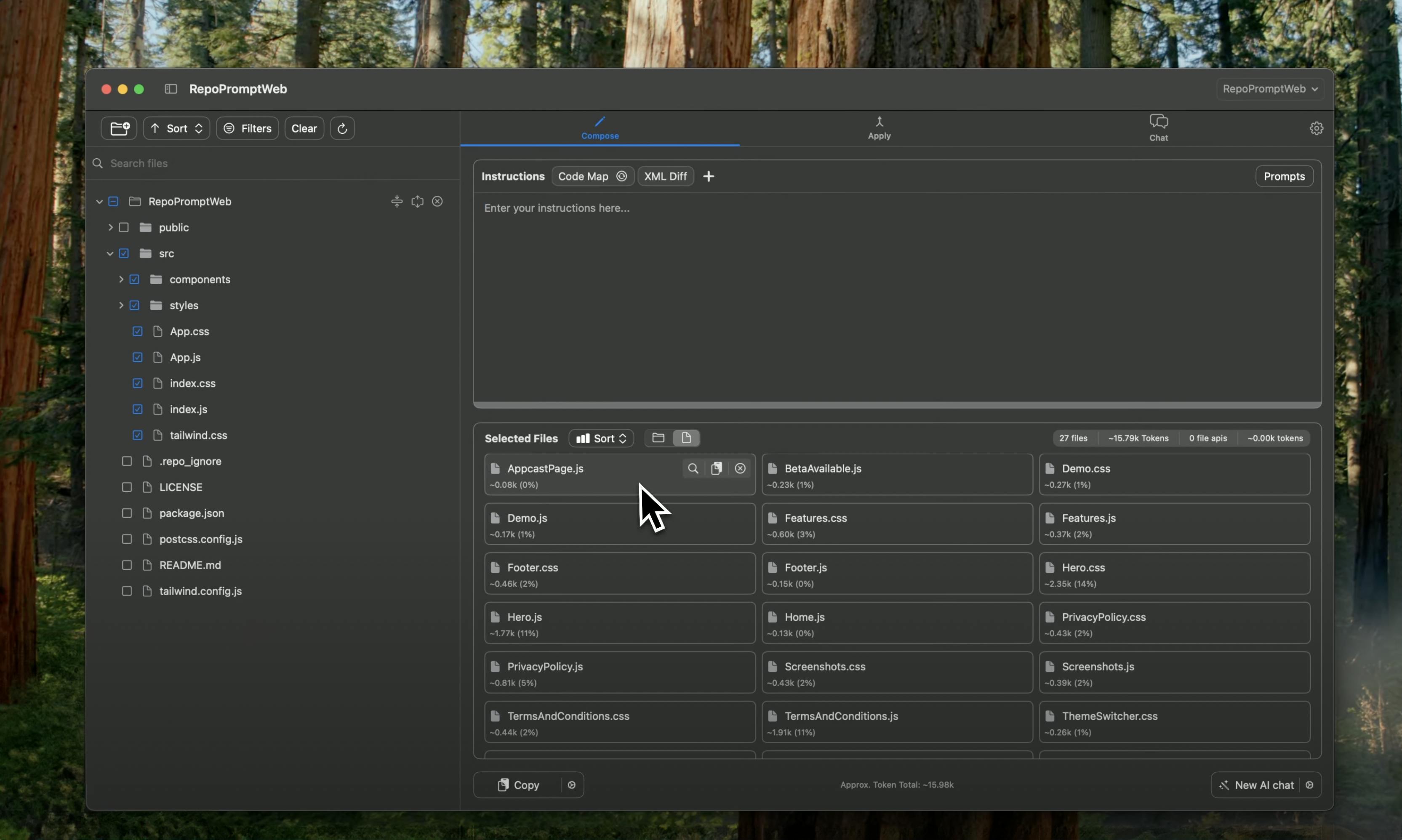
Claude Code
Claude Code is Anthropic’s terminal-based coding agent, released in early 2025.
It works exclusively with Claude models and is designed for simplicity: install it, run it, and get assistance in your terminal without learning a new IDE.
It’s a good fit for terminal-heavy tasks, not just code.
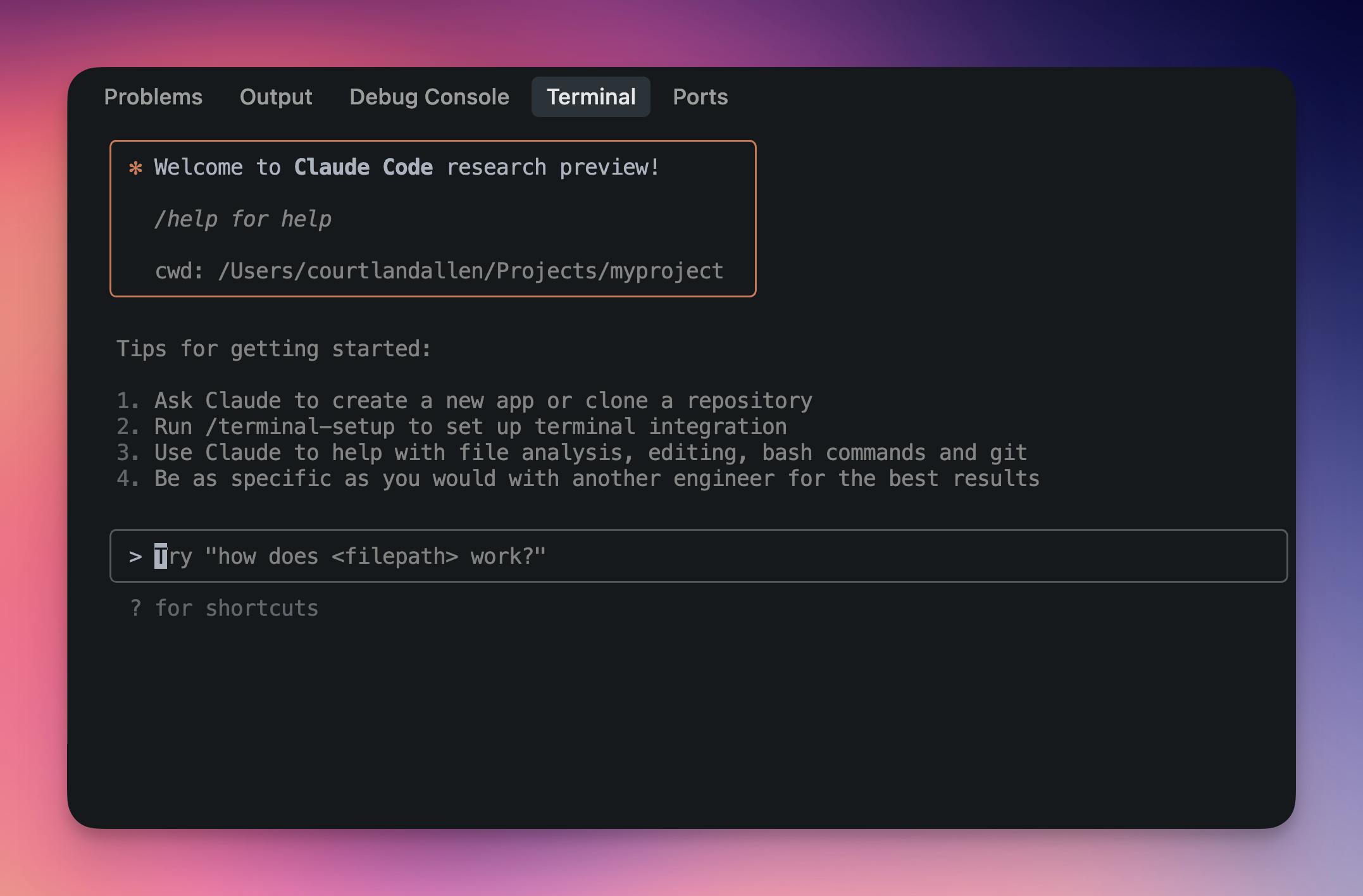
Aider
Aider is one of the earliest terminal-first coding agents, with over 2 million installs.
It’s known for flexibility, with support for most major LLMs—not just OpenAI or Anthropic.
The tool is tuned to feel like a pair programming partner, and it plays nicely with devs who prefer a command line workflow.

Devin
Devin is a web-based coding agent that acts more like a virtual hire than a coding assistant.
It can handle tasks autonomously, open pull requests, and even run multiple Devins in parallel.
Once priced at $500/month, it now costs $20. According to Gumroad, Devin currently authors 41% of their PRs.

good list but one thing keeps bugging me about every vibe coding roundup - they're all software. cursor, claude code, aider, devin, all fighting over the same IDE/terminal space. nobody's looking at the input side.
i spend my evenings running claude code in terminal. 90% of what i do is five keys. accept, reject, scroll, navigate, dictate. a full keyboard sitting there for five buttons felt increasingly stupid so i built a macOS app that maps a PS5 controller to those shortcuts instead
not saying it belongs on this list, it's a different category entirely. but "tools for vibe coding" probably shouldn't stop at the software layer. the physical setup matters, especially when AI is handling most of the typing.
Been through most of these. Started with Lovable, moved to Cursor with Gemini, now mainly Claude.
The missing piece in all these lists is what happens after you ship. Vibe coding gets you to v1 fast but the real test is maintaining a codebase that AI helped write. Debugging code you don't fully understand is a different skill. I use Sentry... always.
Would add Windsurf to this list... but haven't been using it lately.
Why no mention of Github Copilot , Gemini Code Assist, or Amazon Q when writing about the "most widely used AI coding tools?"
+1
So the roundup is nice - but was expecting more from this article. I could have gotten this roundup in Google AI studio + search grounding ON + Gemini 2.5 :)
I came here from your newsletter - the newsletter says "ranked". Are they ranked? I don't see any indication of that.
So the roundup is nice - but was expecting more from this article. I could have gotten this roundup in Google AI studio + search grounding ON + Gemini 2.5 :)
I came here from your newsletter - the newsletter says "ranked". Are they ranked? I don't see any indication of that.
Or at least what each of them are good for and what aren't.
ارجوكم اخبروني عن ذكاء اصطناعي مجاني يختبر الكود عمليا ( انا مبتدئ )
OpenAI is still in talks to buy Windsurf. They haven't acquired it. Probably want to fact check that
Yep, fixed!
Awesome article! I would like to add Trae alongside Cursor/Windsurf due to its (currently) free usage of various big LLMs (Claude 3.5, 3.7, ChatGPT up to Deepseek).
Discover the 9 best vibe coding tools developers use to streamline workflows, enhance productivity, and simplify collaboration. These innovative tools help boost coding efficiency and create smoother development experiences.
This roundup is cool to note. “Vibe coding” tools are fun, but tough to separate which ones are fleeting trends vs ones that change dev workflows for real. After building orchestration systems and stitching Claude into my stack, I’m pretty opinionated: the tools that matter most aren’t the ones that just autocomplete, but the ones that respect structure, conventions, and validation.
While reading this, what struck me is how many tools aim for comfort, speed, and being “just enough” for small tasks, and that’s great. But I’ve seen firsthand with orchestration that speed without guardrails leads to chaos: inconsistent naming, architecture drift, complex tech debt. When I built those flows (idea → backlog → UI → backend → PR), the thing that saved me was enforcing atomic steps, code reviews, and visibility on every change.
So my take: vibe coding is great for velocity, exploration, hacking. But if you want something that scales for teams, product growth, maintainability, you need tools that force clarity, discipline, and incremental discipline.
Excellent summary. In addition to these tools, I’ve observed many teams enhance their workflows by working with specialized development partners. ValueCoders assists startups and enterprises in optimizing coding workflows through dedicated development teams and tailored solutions similar to having the perfect tool alongside the right personnel. Definitely worth a look if you're growing rapidly.
Hey folks,
I’ve been exploring ways to build some online income without spending upfront, and I recently tested a bunch of free AI tools (like ChatGPT, etc.). Ended up making a small but surprising income using one of them—completely free.
So I put together a short breakdown in a video to help others who are just starting:
Search on YouTube - "Free AI Tools That Help You Make Money Online (You Haven’t Tried #4!)"
No fluff, just simple tools + how I used them. Curious what others are using too—especially anything that’s beginner-friendly and doesn’t require upfront investment?
Would love your feedback or suggestions!
🌟 This article is incredibly insightful! The tools highlighted here reflect the evolving landscape of coding and how important it is for developers to adapt.
As someone actively building my own project, I can appreciate the value these tools bring to our workflows. It’s amazing to see how AI is streamlining processes and enhancing productivity. I’m particularly excited to explore [insert specific tool mentioned in the article] further!
Thank you for sharing this guide—it's a fantastic resource for both new and seasoned developers alike. Looking forward to seeing more content like this!
If you're already using no-code tools, adding Synapis is an easy way to slap AI into your website — custom models, no GPU or ML background needed.
That's a solid roundup! It's exciting to see how fast AI coding tools are evolving—many of them are really changing the way developers approach tasks, from writing boilerplate to debugging faster. Tools that boost productivity while keeping the creative flow intact are definitely the ones setting the vibe for 2025. Which one has impressed you the most so far?
Really cool list! I’ve noticed that the tools we choose can seriously shape how we feel while coding — not just our output. I’ve been getting a lot of mileage out of the Cursor makes the flow feel smoother and keeps distractions low.
now we need to sneak in that list the new Figma Make and Figma Sites announced today
Great roundup! It’s exciting to see how vibe-driven coding tools are reshaping developer workflows. I’d also add the low code platforms like ToolJet, Base44, DronaHQ and others that now integrate AI to accelerate the development process even further.
Useful information! Thank you
I’ve been hearing a lot about Devin lately but haven’t had the chance to try it myself. Curious how capable it really is in real-world use like, can it genuinely take over full tasks or is it still best as a co-pilot?
I've tried most of these and Windsurf is my favorite so far!
Nice article!
I've been testing BOWWE lately and it feels like a hidden gem, super useful for indie makers. It lets you go from idea or doc to website without friction, and still gives you full control (not locked into rigid templates).
I used it to publish a simple MVP in a few hours and it handled hosting, SEO and form logic without code. Worth checking if you're looking for something faster than Webflow but more powerful than Canva.
I'm building an alternative, Stellify provides a structure for AI to build web applications within using a combination of granular JSON definitions that define code down to a single keyword and API routes that allow for manipulation of those definitions either by a human or an Agent. The result is secure, highly maintainable applications built on a trusted stack (Laravel). Click on my profile to find the link to the IDE and be sure to let me know what you think of it!
That sounds like an exciting project! I love the idea of combining granular JSON definitions with AI-driven web app building. I'll check out the IDE and share my thoughts soon!
Great roundup — it’s amazing how fast the tooling space is evolving.
Cursor seems to have nailed the “inline flow” feeling developers love, but Codex CLI sounds super promising too, especially being open-source from day one.
Excited to see how these tools shift the standard developer workflow from manual edits to more collaborative, agent-driven coding sessions.
Ok... So which one should I use?
this is great for productivity. what about tools that help us find audience, customers and so on? could you make a list? because i feel it is getting "very" easy to build put harder to get visibility (not hype) as there is like too much products and at the end of the day we need customers. what you guys thoughts?
This is nice , would start implementing soon
great tool
Hey just wanted to mention my new Github App is a AI Software Coding Agent that creates PRs I guess it can be classified as "vibe" coding. Its called repobird - can't post links yet though so DM if you want to try it free.
Nice tool
I noticed no mention of copilot, but as a user thereof, I’m not surprised. We get it free at work, and can use it on our own projects at home, but I pay for my own cursor subscription because copilot is just that bad in comparison!
👍 Thanks for the list—there are a couple of new tools here that I definitely want to try out!
I’m also testing Junie from JetBrains.
These tools are amazing, but they all remind me of the emergence of WYSIWYG editors for HTML and CSS in the 1990s. The concept was there, and pretty much universal. What happened was that each of the tools followed different product roadmaps, prioritizing different things, until they all ended up at the same place. Once there, they all kind of fizzled out because none of them could replicate the quality of professionally hand-coded web sites. And so these "no code" tools for novices gave up their best ideas and gave way to tools for professionals.
"Vibe" coding is "coding" now. We're calling it "vibe" to differentiate it from what we've been used to. But what we've been used to is over.
The difference is, just like with WYSIWYG "vibe" coding is speaking to relative novices in the "anyone can do it" voice. I suspect all of that will fizzle, just like WYSIWYG did. There is simply no combination of UI elements user-friendly enough for a novice to have the power of a pro. Whatever we gain in ease of use costs us huge sacrifices in customization and uniqueness.
But, as with WYSIWYG, these tools won't go away when they fizzle. The best elements of what they do (and it's a lot of really good stuff) will make its way into tools for pros.
What that means is that AI has permanently entered the development process. And while I doubt it will make novices into gurus, it will be the core element in every development toolkit, the rock upon which businesses build and hire their development teams, and become the core technology that pros use to build anything and everything.
I have tried using Cursor, which is suitable for micro-carving. Because Cursor contains Claude 3.7 Sonnet, I did not use Claude.
Would love to hear your thoughts on createmvps .app
Cursor has certainly been a game changer for me, for almost a year now, and especially all the way since claude-3.7-sonnet. But the devil is in the details. Some people (rightfully so) pointed out that Github Copilot wasn't mentioned. Globally, you could say that Cursor is better - but in practice, it depends on what language you're working with, and what kind of logic you're working with.
E.g., when writing in Go, I most of the time prefer Github Copilot, because Cursor gives with it a lot of issues or just weird solutions. Besides, Go logic oftentimes is (sort of) more granular, more precise. What you need is a good IDE (I use GoLand) + Copilot for autocomplete as you go. Meanwhile when working with Typescript/Node.js, most of the time I prefer Cursor with either claude-3.7-sonnet or gpt-4o. Especially for some chunks of functionality like getting the ORM to generate a proper query for me. Or something more mundane, boilerplates, etc.
Also worth mentioning that Cursor + Aider have been doing for a while now (with Cursor being integrated with fully fledged IDE) what Codex CLI and Claude Code are trying to do with their console solutions. However, this time it looks like "out of the box" toolset will not replace the elaborate and high quality wrapping for some while.
Discover the 9 best vibe coding tools developers swear by to boost productivity and streamline workflows. From smart code editors to real-time collaboration platforms, these tools are designed to enhance focus, efficiency, and creativity, making your coding journey smoother, faster, and more enjoyable than ever before.
The OpenAI + Windsurf deal is going to tighten consolidation in this space. My guess is that will put pressure on smaller AI code‑assist tools to niche down, partner up, or risk being out‑spent on model access / distribution.
Augment code also works better!
That's a great article, thank you! What would be great to have is a table-like comparison, with pros, cons and which fit best for particular uses.
Cline with the monkey bank custom instruction is so good, but very, very expensive. One tip is to sign up for billing in Google Cloud and link your Gemini API key to it. The limits aren’t what they used to be, but you’ll get a few free, high quality tasks a day.
It seems like this article provides a round-up of popular AI tools for developers, with a focus on their productivity-boosting capabilities. If you're looking for an additional tool or a specific comparison, options like GitHub Copilot or Amazon Q could be worth considering. It’s also interesting to see the variety of options, from Codex CLI’s terminal-based approach to Aider’s command-line flexibility.
My friend developed a website using cursor, it's so cool, he barely wrote any code
Interesting! I’ve been toying with a freemium model for my Android app. Mind if I ask what tipped you toward subscription over one-time?
Hope this finds you well! I’ve been toying with a powerful idea, and I’m looking for the right mind (and heart) to build it with. Imagine this:
🌐 A secure, anonymous platform where individuals can report corruption, abuse, corporate malpractice, or government overreach—without fear.
Think “Signal meets Wikileaks,” but optimized for today’s digital world—clean UX, end-to-end encryption, anonymous document sharing, and possibly blockchain-backed for transparency and data integrity.
Here’s the kicker:
I’m not just looking for someone to code. I’m looking for a co-founder—a technical soul who wants to build something meaningful. A platform that protects the truth, empowers whistleblowers, and maybe even shifts the balance of power where it's needed most.
You’ll bring the dev wizardry. I’ll bring domain knowledge, strategy, ops, and financial modeling. Together? We make a dent.
Key ideas I want us to explore:
Anonymous tip submission (with layered encryption)
Smart alert system (to connect with journalists, legal aid, etc.)
Real-time moderation & fact verification tools
User trust scores or safe-badge system
Global/local access tiers
Monetization through partnerships with NGOs, media outlets, or via a SaaS B2B model for ethical compliance in enterprises
We start lean. Secure. Scalable.
You in for a quick chat? Even if it’s just to brainstorm?
Let me know. I think we could build something that matters.
Best,
Richard
realrichardowen1948 at Gmail . com
“Truth needs a platform. Let’s build it.”
Please let that "vibe coding" trend die. It really is only for weekend projects, throwaway demos, and POC's.
Agentic coding tools, on the other hand, are what we should be talking about for building real software that solves real problems.
I personally believe that vibe coding is helpful but only till a certain extent as it cant make any software with some specific advanced modifications as it can only be done by a human and not any AI ,Also vibe coding is hyped up due to majority of non coders who dont know about coding so in a few time they will forget about it
At this point "vibe coding" is just slang for agentic/AI coding, you're best off just treating them as interchangeable terms. There's no clear line between the two.
Great list of tools! I noticed Replit wasn’t on there, and I honestly think it should be.
Replit has really changed the game for “vibe coding” – it’s perfect for developers who want to focus on coding and not get bogged down by all the setup and configuration. Everything is in one place: an IDE, instant deployment, and templates that let you get started on a project in no time.
It makes the whole development process smoother and faster. Plus, it’s just so easy to experiment with new ideas, test stuff out, and deploy on the fly.
For example, I’ve used Replit to build and launch free tools and it was a total game-changer. It's simple, fast, and gets out of your way so you can focus on what you do best – coding.
I have used Cursor, Windsurf, Cline and GitHub Copilot. Cursor is my favourite for now!, Windsurf or GitHub Copilot Each has its strengths, but Cursor's features are really boosting my dev speed.
Totally agree with the vibe-first approach. It’s underrated how much your tools and environment can affect productivity and creativity.
Intresting
I have also used Trae and it looks fine. There are more premium models for free at the moment.
Super cool picks! I'm always curious about what tools actually stick in real dev workflows.
What’s the best no-code platform to build a Micro-SaaS? Also, what are your thoughts on Lovable?
What about replit?
I think it's worth including Claude Desktop with MCP file edit extensions as a DIY, "free" way to use a code agent. A benefit is that you're able to combine it with other LLM workflows that you're already using like web search, Sentry integrations, etc.
"AI coding tools are advancing so quickly that most developers don’t know which ones are worth using or how they differ."
Glad someone else noticed :) Good list, I hadn't heard of Codex CLI or Claude Code until now, so I'll have to give them a try.
Since a lot of these AI tools use OpenAI's or Anthropic's models on the backend, is their main advantage the in-line code editing and direct access to/knowledge of your codebase? What do you gain using these tools over working with OpenAI's or Anthropic's models directly?
Lovable as well!
Great roundup! Tools like Raycast and Warp have seriously changed how I code daily. Love seeing developers prioritize both productivity and vibe, makes a huge difference in workflow and motivation.
My One of the Best AI tool is CURSOR
Channing Allen is the co-founder of Indie Hackers, a platform dedicated to sharing the stories, business ideas, strategies, and revenue figures of founders building profitable online businesses. Launched in 2016, Indie Hackers quickly gained traction and was acquired by Stripe in 2017. In 2023, Channing and his co-founder decided to spin the company out of Stripe, returning Indie Hackers to its roots as a fully independent business.
That's a solid roundup! It's exciting to see how fast AI coding tools are evolving—many of them are really changing the way developers approach tasks, from writing boilerplate to debugging faster. Tools that boost productivity while keeping the creative flow intact are definitely the ones setting the vibe for 2025. Which one has impressed you the most so far?
This is such a great roundup and I love how the tools lean into vibe and not just productivity. Totally agree that flow state is underrated in dev work.
Great roundup! I love how these tools enhance productivity and vibe. Definitely trying a few, especially the ones that make coding feel more fun and immersive.
cursor is my fav.
This is a fantastic roundup thanks for doing the legwork! It's wild how fast the ecosystem is evolving. I’ve been using Cursor for a bit now and totally get why it’s at the top that inline editing is a game-changer.
Curious to dive deeper into Codex CLI and Claude Code too; the terminal-based tools are starting to look really sleek, especially for folks who want that low-friction, IDE-free vibe. Also, Devin at $20 now? That’s... kind of unreal.
Anyone here using Repo Prompt regularly? That one feels like a hidden gem for more surgical, prompt-driven workflows.
It would have been more useful to outline their features, differences, pros and cons than just listing different options.
As a developer I’m aware of most tools but lack the time to test them or dive deeper into documentation to figure out what makes each unique.
I’m using Cursor and switching mid project would not be a smart move.
Do you have a daily driver that you find yourself turning to more and more, or is it more of a case of the right tool for the right job?
Great article Channing, thanks a lot!
I've been using Cursor for a while now — it's been a real improvement for my workflow overall, even though I noticed some strange behaviors after the last update. Curious to see how it evolves.
Thanks to your post, I discovered Repo Prompt and Aider, and I'm definitely intrigued.
My current project (SocialRally, a gamified SaaS platform) is already well underway, so I won’t be changing environments midstream… but honestly, Devin really caught my eye for a future project 🚀.
Do you mix different tools depending on the task, or have you found your perfect setup?
Very curious to hear about your workflows!
This comment was deleted 10 months ago
This comment was deleted 10 months ago